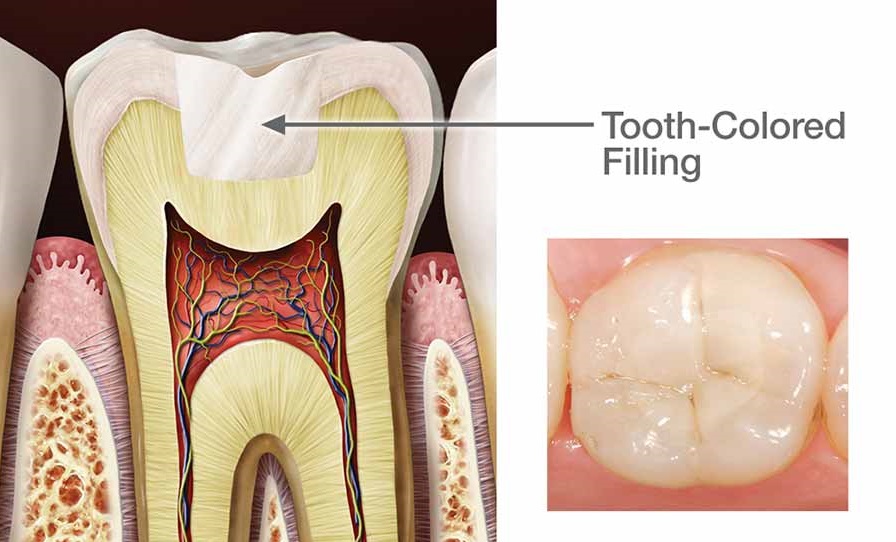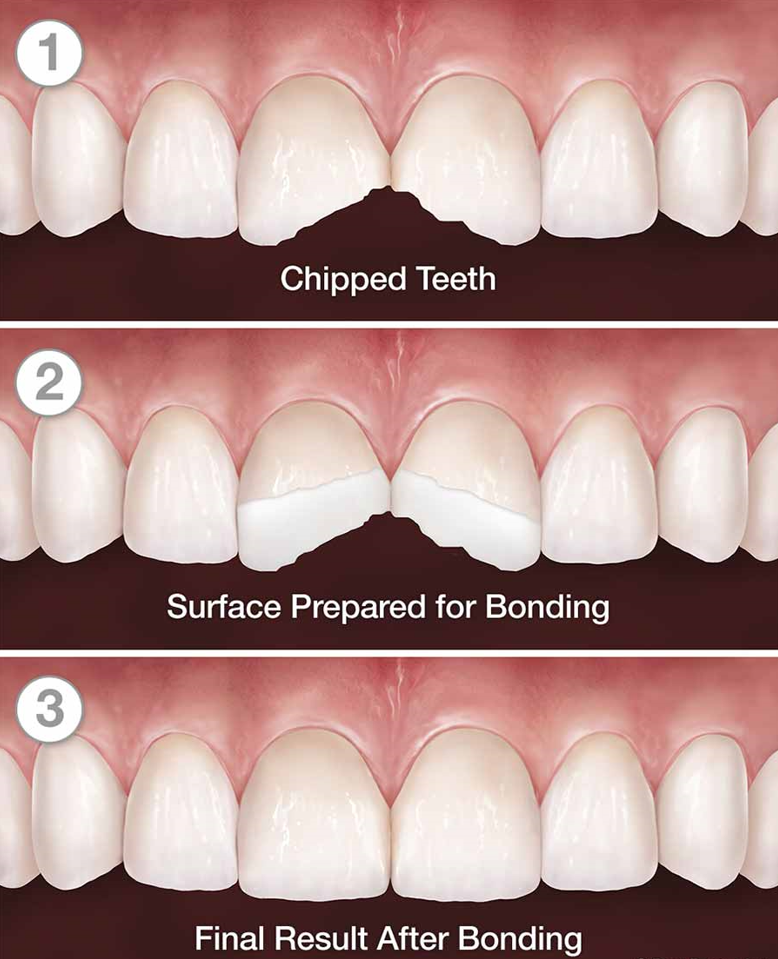FAQs
Which type of dental filling is better?
When addressing cavities, you can select from several filling options. The following are the most frequently used.
Amalgam Fillings
Amalgam fillings, also known as silver fillings, are strong and durable. The problem with amalgam fillings is that there is not a perfect seal between the tooth and the silver fillings.
As a result, cavities form under the silver fillings. Patients receiving these restorative dental services are also exposed to mercury when amalgam fillings are placed and removed.
Composite Fillings
Composite fillings (tooth-colored fillings) do not place patients at risk of mercury because there is no mercury in composite fillings. With composite fillings, less tooth structure is removed.
Composite materials are popular dental fillings for cavities because they mimic the appearance of natural teeth. These restorative dental care solutions are recommended over amalgam fillings. They are also free of harmful mercury.
How long do fillings last in teeth?
Amalgam fillings, known for their strength and durability, can last 10-15 years. Composite fillings can last about 5-10 years with good oral hygiene, routine dental check-ups, and teeth cleanings.
Does it hurt to get fillings done?
Advancements in dentistry have made getting dental fillings for cavities a pain-free process. At our office in Whittier, CA, we use local anesthetics to ensure patient comfort and a painless dental experience.
Do dental fillings fix cavities?
Dental cavities are areas of tooth decay that the dentist removes. After removing the decay, dental fillings are placed into the tooth. Fillings are restorative dental services that repair cavities by restoring the tooth’s shape, appearance, and function.
Can you repair a cavity without a filling?
In the very early stages of dental decay, high concentrations of topical fluoride treatments and improved oral hygiene can repair the enamel and prevent the cavity from progressing. Once a cavity has progressed beyond the enamel, however, you need to get dental fillings for cavities to repair the tooth.
Do fillings stop cavities from getting worse?
These restorative dental care solutions keep cavities from worsening by sealing off bacteria from re-entering the tooth, thus preventing further decay.
How long can you leave a cavity untreated?
Leaving cavities untreated allows the decay to progress into the nerve, which may require root canal treatment to remove the bacterial infection. Like a leaking roof, the longer you wait, the bigger the problem and the more expensive the solution.
It’s best not to leave untreated cavities and get dental fillings as soon as possible. Routine dental exams enable the early detection of cavities, helping them from becoming bigger problems.
What happens if you don't fill a cavity?
If you don’t receive restorative dental services and fill a cavity, it can progress into your nerve and cause tremendous amounts of pain and infection. Delaying treatment allows the problem to grow, leading to more complex, costly repairs later.
How long does it take for a cavity to turn into a root canal?
No one can say with certainty how long it takes for a cavity to turn into a root canal, or when dental fillings will no longer be the solution. The progression of cavities depends on multiple factors, including:
- Your dental hygiene at home
- Types of food you eat
- Your body’s healing ability
Poor oral hygiene leads to increased bacteria and worsening decay; consuming sugary foods accelerates this process, and a weak immune system hampers the body’s ability to fight the infection.
Good oral hygiene and restorative dental care, such as routine check-ups and dental cleanings, help prevent the need for a root canal.
How do you tell if a cavity has reached the pulp?
Signs that indicate decay has reached the pulp and you can no longer receive dental fillings for cavities to fix the issue include:
- Swelling
- Tooth abscess
- Throbbing pain
- Pus exiting the gum
- Sensitivity and pain to hot and cold
Confirming a tooth infection requires dental X-rays. For tooth pain, contact your emergency dentist for restorative dental services today.
Will fillings eventually demand root canal procedures?
Most dental fillings do not need root canals. If you detect cavities early enough, dental fillings will be sufficient to fix them.
You can also avoid root canals with:
- Good oral hygiene
- Routine visits
- Deep teeth cleaning













